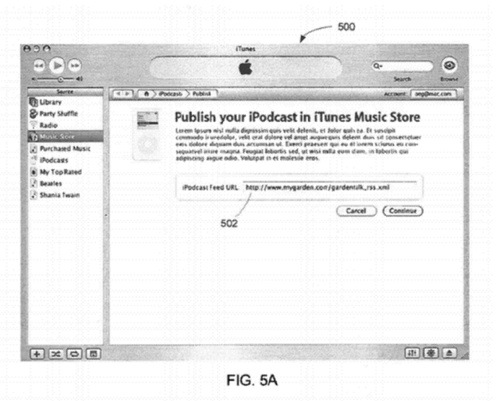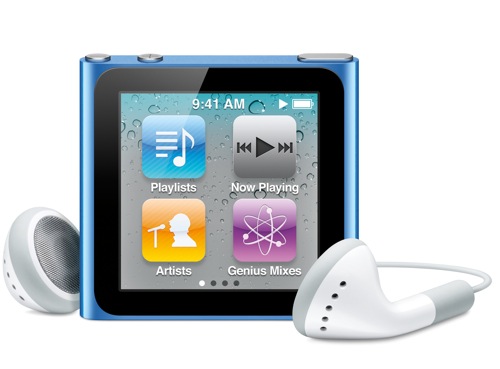An Apple patent (number 20120284422) at the U.S. Patent & Trademark Office shows that the company is working on ways to improve podcasting. The patent is titled “techniques and systems for supporting podcasting.”
Improved podcasts and techniques that facilitate their use are disclosed. The improved techniques can pertain to creating, publishing, hosting, accessing, subscribing, managing, transferring, and/or playing podcasts. According to one aspect, a client application can subscribe to podcasts and then automatically monitor the podcasts for updates to be downloaded. In the event that user interest in a podcast becomes inadequate, downloading of further updates can be restricted.
According to another aspect, a podcast can be subscribed to through use of a portable subscription file. According to still another aspect, podcast feeds can be enhanced to include segment elements and other metadata.
Here’s Apple’s background on the invention: “media player stores media assets, such as audio tracks, that can be played or displayed on the media player. One example of a portable media player is the iPod media player, which is available from Apple Computer, Inc. of Cupertino, Calif. Often, a media player acquires its media assets from a host computer that serves to enable a user to manage media assets. In managing media assets, a user can create playlists for audio tracks. These playlists can be created at the host computer.
“Media assets within the playlists can then be copied to the media player. As an example, the host computer can execute a media management application to create and manage media assets. One example of a media management application is iTunes produced by Apple Computer, Inc.
“Podcasts are typically used to share content from websites. Podcasts are associated with Really Simple Syndication (RSS) feeds which use a lightweight XML format. A podcast can be organized into episodes much like a radio or television program. An interested person can subscribe to receive podcast episodes that are subsequently published. This is achieved by the interested person using their computer to access a podcast website that hosts the RSS feed.
“The interested person can then subscribe the RSS feed such that their computer occasionally re-visits the podcast website to check for any new podcast episodes. Typically, if a new podcast episode is available, it is downloaded to the computer. Thereafter, the interested user can play the podcast episode at their computer in the same manner as other audio files (e.g., MP3 files). A utility program can be used to download the audio files to a portable media player (e.g., MP3 player). One example of such a conventional utility program is “iPodder” which is a small program that runs on one’s computer to download audio files to one’s portable media player.
“Unfortunately, podcasts are conventionally not easily managed on host computer. Podcasts often dynamically change as new episodes are released. Management of such dynamic media assets is complicated. Additionally, to the extent that the host computer desires to support a portable media player, the host computer needs to manage the transfer of podcast data to the portable media player. Thus, there is a need for techniques to manage and use podcasts on computers.
The inventors are Anne Jones, Thomas Dowdy, Jeffrey Robbin, Mike Wiese and Stephen Davis.



